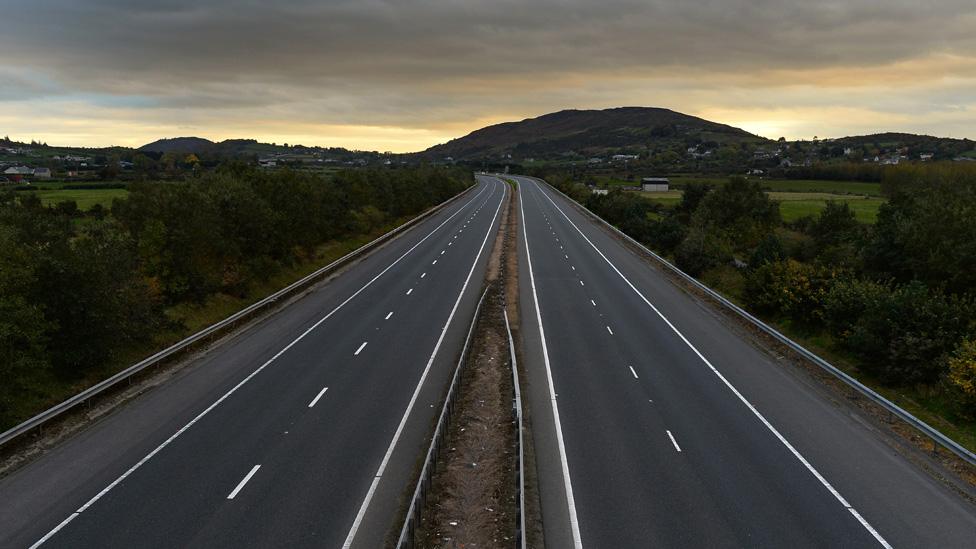Brexit: Government to reveal detailed plan for EU negotiations
- Published
- comments
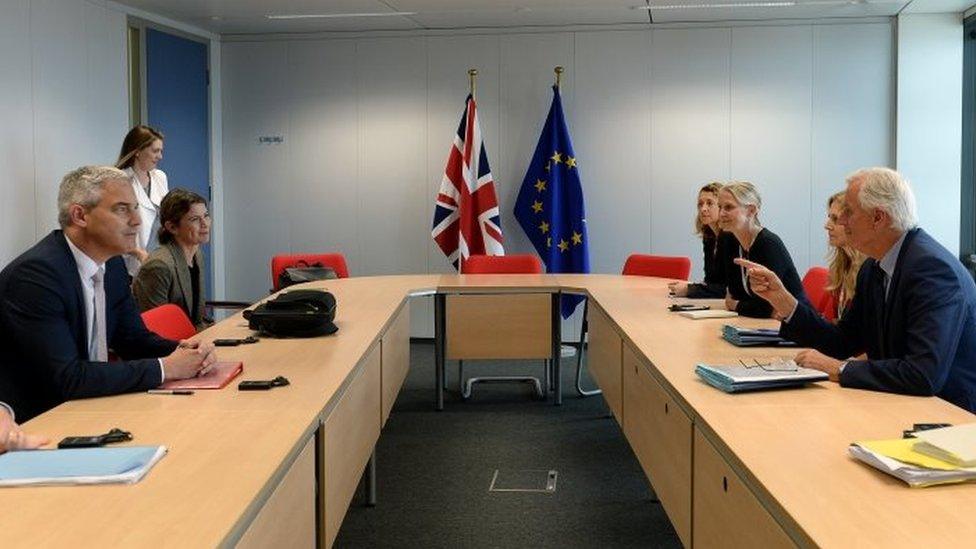
Stephen Barclay and Michel Barnier met for Brexit talks in Brussels on Friday
The government has prepared the legal text of an updated Brexit deal, government sources have told the BBC.
It is expected to make more of the plans public in the next few days, a senior government figure says.
The government has suggested creating "customs clearance zones" in Northern Ireland and Irish Republic, as part of the proposals put to the EU.
But Ireland's Deputy Prime Minister Simon Coveney said the plans were a "non-starter".
In a tweet, external, Mr Coveney said Northern Ireland and the Republic of Ireland "deserve better" than the proposals, which were originally reported by Irish state broadcaster RTE, external.
Proposals for reaching a Brexit deal had been expected ahead of a crucial EU summit on 17 October.
The UK is due to leave the EU on 31 October, and Prime Minister Boris Johnson says this will happen whether or not there is a new deal with Brussels.
Mr Johnson says that he would prefer leaving with a deal.
At the Conservative Party conference on Monday, he said: "I'm cautiously optimistic. We have made some pretty big moves, we are waiting to see whether our European friends will help us and whether we can find the right landing zone."
MPs have passed a law, known as the Benn Act, requiring Mr Johnson to seek an extension to the deadline from the bloc if he is unable to pass a deal in Parliament, or get MPs to approve a no-deal Brexit, by 19 October.
Detailed plan
With the detailed proposals on the table, the UK side hopes that by the end of the week, both the EU and UK would be in a period of intense negotiations where both sides thrash out a final text.
But there is no certainty over whether the EU will accept the premise of the plans in order to move to the next phase of talks.
The biggest obstacle to a deal is the backstop - the plan to prevent a hard border between Northern Ireland and the Irish Republic.
The policy - agreed to by former PM Theresa May in her withdrawal deal with the EU, which was rejected three times by Parliament - is unacceptable to many Conservative MPs.
Since becoming prime minister, Mr Johnson has stressed to EU leaders the backstop would have to be replaced if any deal was to be passed by Parliament.
Mr Johnson has argued that the backstop would keep the UK too closely aligned with EU rules after Brexit.
The EU Commission has said it is willing to look at new proposals but these must achieve the same aims as the backstop - and be legally enforceable.
Sources involved in the negotiations with the EU say the checks proposed would not be at the Irish border, and suggestions there would be a series of checkpoints along the border are a misunderstanding.
The proposals were rejected by political parties in Dublin and non-unionist politicians in Belfast, with the SDLP's Colum Eastwood saying there would be "economic and security challenges that are unacceptable".
Lisa Chambers, the Fianna Fail Brexit spokeswoman described it as "effectively a border with a buffer zone", while Sinn Féin President Mary Lou McDonald said it was "further evidence of Tory recklessness and belligerence towards Ireland".
"Anything that causes there to be customs, tariffs, checks anywhere represents a hardening of the border," she told Radio 4's Today programme.
"[It] goes against all of the commitments that have been entered into by the British government at the get-go of this Brexit process to protect the Good Friday Agreement, to ensure no hardening of the border, to respect the Irish economy, Irish society - to do nothing that would in anyway threaten or destabilise the situation," she added.
Shadow Brexit secretary Sir Keir Starmer described the proposals as "utterly unworkable".
Talks have continued between the UK and EU, at a technical level. Brexit Secretary Stephen Barclay and the EU's chief negotiator, Michel Barnier met on Friday.


The BBC has learnt the proposals will accept the need for customs checks on the island of Ireland - but insist these checks, as the government previously pledged, would be conducted away from the border.
Customs formalities would be carried out mostly where goods originate or at their final destination.
The UK government maintains that any further customs inspections would be very limited - and these could be conducted either at new locations or at existing business premises.
The Irish broadcaster RTE had reported that a "string of customs posts perhaps five to 10 miles away from the frontier" had been floated by the UK.
However, government sources have denied that UK officials had proposed a series of inspection posts on either side of the Irish border.

Leader of the Liberal Democrats Jo Swinson told the Today programme the proposals showed Mr Johnson was "not serious" about getting a deal.
"He knows that this is going to be rejected," she said.
Ms Swinson also said cross-party talks continued about how to ensure the Benn Act was "watertight".
She raised concerns that although Mr Johnson has promised to respect the rule of law, he has also promised to deliver Brexit on 31 October, with or without a deal.
"Those two things can't simultaneously be true," she said.
- Published1 October 2019
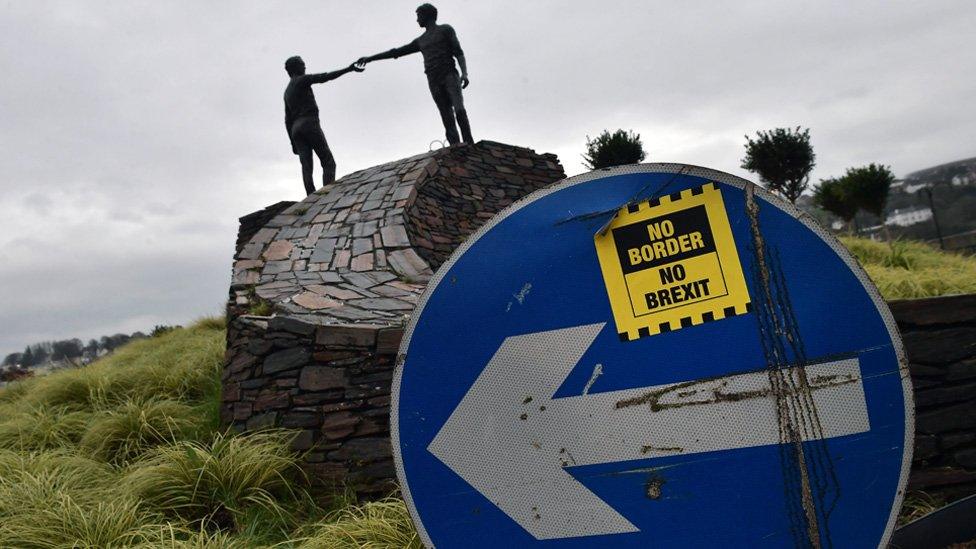
- Published27 September 2019
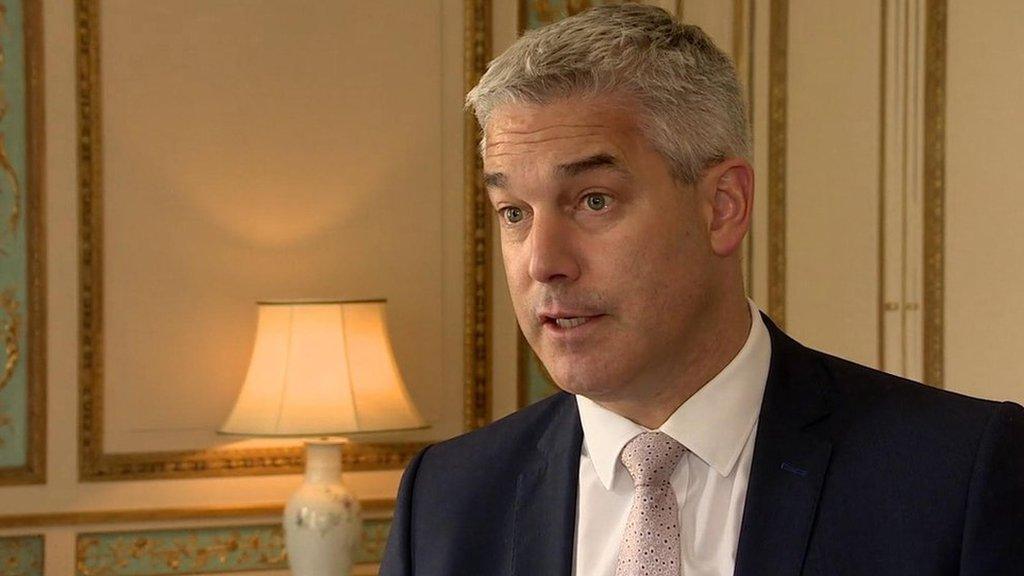
- Published25 October 2019
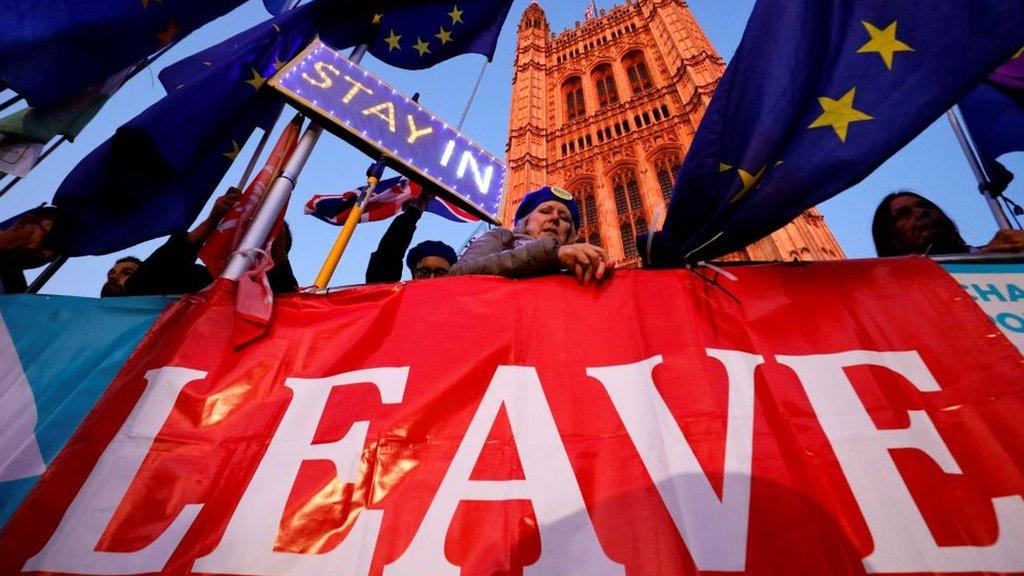
- Published9 September 2019
